
 Augustus Minerals (AUG:AU) has announced Heritage Approval for Drilling at Music Well
Augustus Minerals (AUG:AU) has announced Heritage Approval for Drilling at Music Well
Download the PDF here.

 Augustus Minerals (AUG:AU) has announced Heritage Approval for Drilling at Music Well
Augustus Minerals (AUG:AU) has announced Heritage Approval for Drilling at Music Well
Download the PDF here.

 Brightstar Resources (BTR:AU) has announced Lord Byron RC Drilling Results and Mineral Resource Upgrade
Brightstar Resources (BTR:AU) has announced Lord Byron RC Drilling Results and Mineral Resource Upgrade
Download the PDF here.
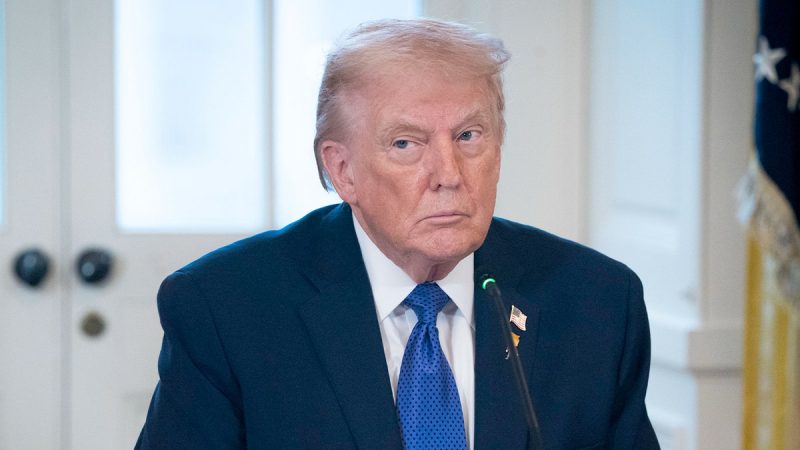
The Trump administration’s renewed interest in tapping Venezuela’s mineral reserves could carry with it ‘serious risk,’ an expert on illicit economies has warned in the wake of the capture of Nicolás Maduro.
A day after the U.S. military captured Maduro in Caracas, Trump administration officials highlighted their interest in the country’s critical mineral potential.
Commerce Secretary Howard Lutnick told reporters on Jan. 4, ‘You have steel, you have minerals, all the critical minerals. They have a great mining history that’s gone rusty,’ he said aboard Air Force One alongside President Donald Trump.
Lutnick also said that Trump ‘is going to fix it and bring it back – for the Venezuelans.’
‘Venezuela’s gold, critical mineral and rare earth potential is substantial, which makes mining resources very much on the menu for Trump,’ Bram Ebus told Fox News Digital.
‘But this illicit economy involves extreme violence,’ he said, before describing abuses that include forced labor, criminal control of mining zones and punishments such as ‘hands being cut off for theft.’
Ebus cautioned that without strict safeguards, transparency and security, Trump’s efforts to tap Venezuela’s mineral wealth could entangle the U.S. in criminal networks.
‘The sector is already dominated by transnational crime syndicates, deeply implicated in human rights abuses, and intertwined with Chinese corporate interests,’ Ebus, the founder of Amazon Underworld, a research collective covering organized crime, said. ‘If corporations or foreign private security firms were to become directly involved in mining in Venezuela’s Amazon region, the situation could deteriorate rapidly and violently.’
Despite the renewed focus on oil and mineral wealth, ‘when it comes to mining, the situation is more complex than oil,’ Ebus added. ‘The illicit extraction of gold, tungsten, tantalum, and rare earth elements is largely controlled by Colombian guerrilla organizations, often working in collaboration with corrupt Venezuelan state security forces. Much of this output currently ends up in China.’
Ebus also described dire conditions inside mining zones. ‘Mining districts are effectively run by criminal governance,’ he explained. ‘Armed groups decide who can enter or leave an area, tax legal and illegal economic activity, and enforce their own form of justice.’ He also described how ‘punishments for breaking rules can include expulsion, beatings, torture or death.’
‘We have documented summary executions, decapitations, and severe physical mutilation, such as hands being cut off for theft,’ he added. ‘Sexual exploitation, forced labor, and torture are widespread with crimes not limited to non-state actors.’
He also noted that ‘Venezuelan state forces, including the army, National Guard, and intelligence services are deeply involved and work in direct collaboration with organized crime groups.’
Ebus described how Colombia’s largest guerrilla organizations, including the ELN and factions such as the Segunda Marquetalia, along with Venezuelan organized crime groups operating locally – or ‘sistemas’ – dominate illegal mining operations, noting that ‘there are at least five major ‘sindicatos’ operating across Bolívar state alone.’
‘Together, all these actors make up the core criminal panorama of Venezuela’s mining sector,’ Ebus added.
In 2016, Maduro established the Orinoco Mining Arc, a 111,843-square-kilometer zone rich in gold, diamonds, coltan and other minerals.
The area has since become synonymous with illicit mining and corrupt officials.
In 2019, the U.S. sanctioned Venezuelan gold exports with at least 86% of the country’s gold reportedly being produced illegally and often controlled by criminal gangs.
However, from a U.S. perspective, Ebus said, the objective behind critical minerals could be limiting China’s access.
‘With gold prices expected to peak around 2026, access to gold represents a major benefit for national economies and government investment stability,’ he said. ‘Beyond gold, controlling critical mineral supply chains offers enormous geopolitical leverage for the U.S., especially if it allows it to deny access to China.’
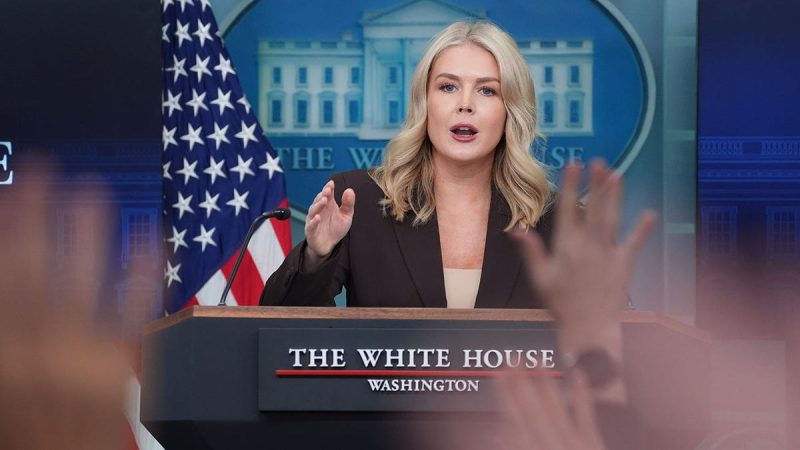
A viral story from a man claiming to have witnessed the U.S. operation to capture Venezuelan President Nicolas Maduro states that the U.S. used sonic weapons during the mission to incapacitate opposing forces.
White House press secretary Karoline Leavitt shared the eyewitness interview on X, encouraging her followers to read the statement. The witness in the interview claims to be a guard who was serving at the Caracas military base where the U.S. captured Maduro.
‘We were on guard, but suddenly all our radar systems shut down without any explanation,’ the witness said. ‘The next thing we saw were drones, a lot of drones, flying over our positions. We didn’t know how to react.’
The witness then described watching roughly 20 U.S. soldiers deploy out of roughly eight helicopters over the base.
‘They were technologically very advanced,’ the guard said. ‘They didn’t look like anything we’ve fought against before.’
‘We were hundreds, but we had no chance,’ he said. ‘They were shooting with such precision and speed; it felt like each soldier was firing 300 rounds per minute.’
The witness then describes the U.S. deploying some sort of sonic weapon against Venezuelan forces.
‘At one point, they launched something; I don’t know how to describe it,’ he said. ‘It was like a very intense sound wave. Suddenly I felt like my head was exploding from the inside.’
‘We all started bleeding from the nose,’ he added. ‘Some were vomiting blood. We fell to the ground, unable to move. We couldn’t even stand up after that sonic weapon — or whatever it was.’
‘Those twenty men, without a single casualty, killed hundreds of us,’ the witness claimed. ‘We had no way to compete with their technology, with their weapons. I swear, I’ve never seen anything like it.’
The White House did not immediately respond to Fox News Digital when asked whether Leavitt’s sharing of the post constituted confirmation of its veracity. The Pentagon also did not immediately respond when asked if the U.S. deployed sonic or energy weapons in Venezuela.
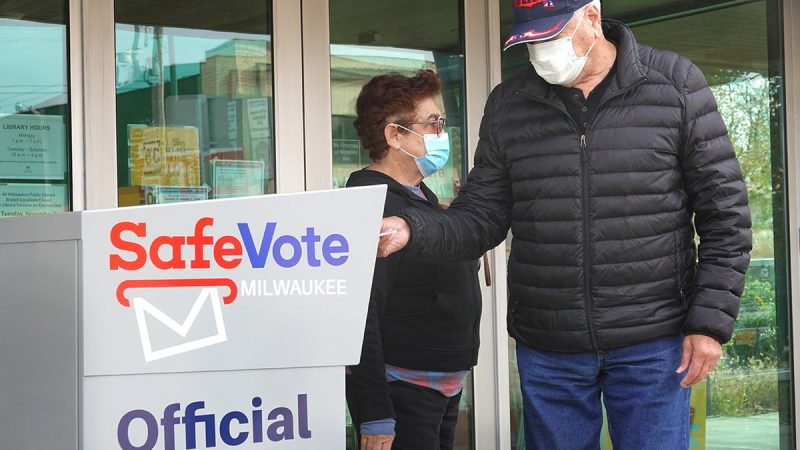
A federal judge in Washington state on Friday blocked the Trump administration from enforcing key parts of an executive order that sought to change how states administer federal elections, ruling the president lacked authority to apply those provisions to Washington and Oregon.
U.S. District Judge John Chun held that several provisions of Executive Order 14248 violated the separation of powers and exceeded the president’s authority.
‘As stated by the Supreme Court, although the Constitution vests the executive power in the President, ‘[i]n the framework of our Constitution, the President’s power to see that the laws are faithfully executed refutes the idea that he is to be a lawmaker,’’ Chun wrote in his 75-page ruling.
White House spokeswoman Abigail Jackson told Fox News Digital in a statement: ‘President Trump cares deeply about the integrity of our elections and his executive order takes lawful actions to ensure election security. This is not the final say on the matter and the Administration expects ultimate victory on the issue.’
Washington and Oregon filed a lawsuit in April contending the executive order signed by President Donald Trump in March violated the Constitution by attempting to set rules for how states conduct elections, including ballot counting, voter registration and voting equipment.
‘Today’s ruling is a huge victory for voters in Washington and Oregon, and for the rule of law,’ Washington Attorney General Nick Brown said in response to the Jan. 9 ruling, according to The Associated Press. ‘The court enforced the long-standing constitutional rule that only States and Congress can regulate elections, not the Election Denier-in-Chief.’
Executive Order 14248 directed federal agencies to require documentary proof of citizenship on federal voter registration forms and sought to require that absentee and mail-in ballots be received by Election Day in order to be counted.
The order also instructed the attorney general to take enforcement action against states that include such ballots in their final vote tallies if they arrive after that deadline.
‘We oppose requirements that suppress eligible voters and will continue to advocate for inclusive and equitable access to registration while protecting the integrity of the process. The U.S. Constitution guarantees that all qualified voters have a constitutionally protected right to vote and to have their votes counted,’ said Washington Secretary of State Steve Hobbs in a statement issued when the lawsuit was filed last year.
‘We will work with the Washington Attorney General’s Office to defend our constitutional authority and ensure Washington’s elections remain secure, fair, and accessible,’ Hobbs added.
Chun noted in his ruling that Washington and Oregon do not certify election results on Election Day, a practice shared by every U.S. state and territory, which allows them to count mail-in ballots received after Election Day as long as the ballots were postmarked on or before that day and arrived before certification under state law.
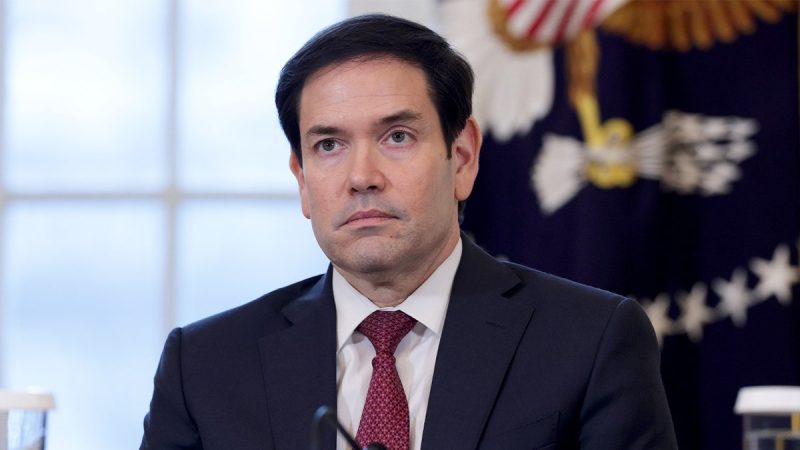
President Donald Trump reacted to a social media post joking about Secretary of State Marco Rubio becoming the president of Cuba, replying, ‘Sounds good to me.’
Trump posted the response Sunday on his Truth Social account after a user wrote, ‘Marco Rubio will be president of Cuba.’
Rubio’s broad portfolio in the Trump administration has fueled online jokes portraying him as being placed in charge of an ever-expanding list of roles.
Officially, he serves as secretary of state, national security advisor, and acting archivist of the United States.
He also previously served as acting administrator of the U.S. Agency for International Development, before the agency’s remaining functions were discontinued or absorbed into the State Department as part of a reorganization finalized in July.
Social media users on X have turned a photo of Rubio from a White House meeting into a viral ‘realizing’ meme, joking that his growing responsibilities make him the administration’s go-to official for a widening range of positions.
Users have posted AI-generated photos of Rubio that depict him in a range of imagined roles, from the Shah of Iran and the president of Venezuela to the manager of Manchester United.
Rubio has leaned into the humor himself, writing on X last week that he wouldn’t be a candidate for the vacant head coach or general manager positions with the Miami Dolphins.
‘While you never know what the future may bring right now my focus must remain on global events and also the precious archives of the United States of America,’ he wrote.

Israeli Prime Minister Benjamin Netanyahu and U.S. Secretary of State Marco Rubio discussed the possibility of U.S. intervention in Iran, according to a report.
The two leaders spoke by phone Saturday as Israel is on ‘high alert,’ preparing for the possibility of U.S. military intervention in Iran, according to Reuters, citing multiple Israeli sources.
The report comes as nationwide anti-regime demonstrations across Iran hit the two-week mark.
On Saturday, the Iranian regime triggered an internet ‘kill switch’ in an apparent effort to conceal alleged abuses by security forces and as protests against it surged nationwide, according to a cybersecurity expert. The blackout reduced internet access to a fraction of normal levels.
On Sunday, Iran’s parliament speaker warned that the U.S. military and Israel would be ‘legitimate targets’ if America strikes the Islamic Republic.
Parliament Speaker Mohammad Bagher Qalibaf issued the threat as lawmakers rushed the dais in the Iranian parliament, shouting, ‘Death to America!’ according to The Associated Press.
President Donald Trump offered support for the protesters on Saturday, writing on Truth Social that ‘Iran is looking at FREEDOM, perhaps like never before. The USA stands ready to help!!!’
At a news conference Friday, Trump said Iran was facing mounting pressure as unrest spreads across the country.
‘Iran’s in big trouble,’ he said. ‘It looks to me that the people are taking over certain cities that nobody thought were really possible just a few weeks ago. We’re watching the situation very carefully.’
The president said the U.S. would respond forcefully if the regime resorts to mass violence.
‘We’ll be hitting them very hard where it hurts. And that doesn’t mean boots on the ground, but it means hitting them very, very hard where it hurts,’ he said.
Fox News Digital reached out to the State Department and White House for comment.
Fox News Digital’s Emma Bussey, Brie Stimson and The Associated Press contributed to this report.


We also break down next week’s catalysts to watch to help you prepare for the week ahead.
Tech markets spent the first full week of 2026 responding to headlines out of the Consumer Electronics Show (CES) in Las Vegas, where semiconductor and artificial intelligence (AI) announcements helped drive Nasdaq Composite (INDEXNASDAQ:.IXIC) momentum. This enthusiasm pushed the index to a fresh record midweek before a bout of profit taking and renewed concerns weighed on sentiment heading into Friday (January 9).
The Nasdaq finished the week up 0.95 percent from Monday’s (January 5) open, powered by gains in memory and storage names like Micron Technology (NASDAQ:MU) and Western Digital (NASDAQ:WDC) after upbeat commentary on next-generation data infrastructure. However, the rally faded as investors rotated into defensive stocks after US President Donald Trump proposed a US$1.5 trillion “Dream Military” budget.
Labor market indicators for the week suggest a continued, gradual cooling in the American job market, supporting the case for future US Federal Reserve interest rate cuts.
North of the border, Canada’s S&P/TSX Composite Index (INDEXTSI:OSPTX) retreated after briefly hitting a record, mirroring the US market’s rotation in the second half of the week, weighed down by Venezuela oil fears.
Shares of Micron Technology rose 0.12 percent on Monday after the company provided an investor update confirming strong demand for its high-bandwidth memory, critical for AI GPUs, through 2026.
Comments on storage shortages at CES amplified gains on Tuesday, driving an 8.25 percent advance for Micron that day alongside additional memory stocks. The company saw a 6.14 percent weekly gain.
Lockheed Martin jumped by as much as 2.06 percent on Thursday (January 8) after Trump’s Truth Social post prompted an investor rotation to defensive tech stocks.
Sandisk, a company focused on NAND flash, SSDs and memory cards for consumer and AI data center use, jumped as much as 27.57 percent on Tuesday as comments at CES from NVIDIA (NASDAQ:NVDA) and Samsung Electronics (KRX:005930,OTCPL:SSNLF) executives reignited concerns of forthcoming price increases for NAND flash memory.

SanDisk, Lockheed Martin and Micron Technology performance, January 5 to 9, 2026.
Chart via Google Finance.
Tech exchange-traded funds (ETFs) track baskets of major tech stocks, meaning their performance helps investors gauge the overall performance of the niches they cover.
This week, the iShares Semiconductor ETF (NASDAQ:SOXX) advanced by 2.47 percent, while the Invesco PHLX Semiconductor ETF (NASDAQ:SOXQ) saw a gain of 1.45 percent.
The VanEck Semiconductor ETF (NASDAQ:SMH) also increased by 1.98 percent.
Next week will bring bank earnings, starting with JPMorgan Chase (NYSE:JPM) on January 12, and Bank of America (NYSE:BAC) on January 15. January 15 will also bring the latest quarterly results from Taiwan Semiconductor Manufacturing Company (NYSE:TSM).
US producer price index data will hit on January 14, testing Fed interest rate cut bets, while Micron is set to break ground on its US$100 billion New York mega-fab on January 16.
Securities Disclosure: I, Meagen Seatter, hold no direct investment interest in any company mentioned in this article.
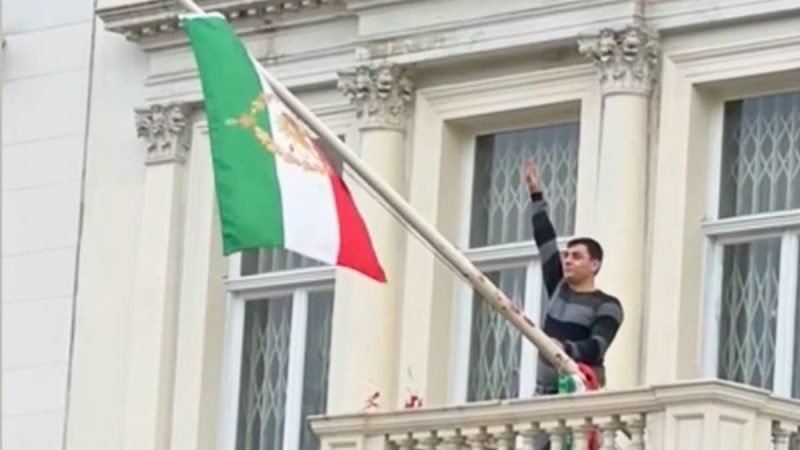
An anti-regime protester scaled the balcony of Iran’s Embassy in London on Friday and tore down the Islamic Republic’s flag, replacing it with Iran’s pre-1979 ‘Lion and Sun’ emblem, video shows.
The demonstrator climbed the front of the embassy building in Kensington before ripping down the regime’s flag and hoisting the historic symbol associated with Iran’s monarchy prior to the 1979 Islamic Revolution as a large crowd of anti-regime protesters cheered on.
The Metropolitan Police said officers responded to the scene and made two arrests — one for aggravated trespass and assault on an emergency worker, and another for aggravated trespass. Police said they are also seeking another individual for trespass. It was not immediately clear whether the protester who tore down the flag was among those arrested.
Fox News Digital reached out to Iran’s Embassy in London for comment but did not receive a response by the time of publication.
The embassy protest comes as Iran faces its most significant wave of unrest in years. President Trump has warned the regime that the U.S. will protect protesters if necessary.
Potkin Azarmehr, a British-Iranian journalist, said the current unrest stands in sharp contrast to Iran’s 2009 Green Movement, when protesters openly questioned whether the Obama administration supported them.
‘What a contrast to Obama’s time, when protesters in Iran were chanting, ‘Obama, are you with us or with them?’’ Azarmehr told Fox News Digital.
‘Any international support, whether at the grassroots or government level, is encouraging,’ he said.
He said global attention matters to protesters on the ground, but questioned the lack of visible demonstrations by Western activist groups.
‘The question is where are the Western activist elite protesters? Why are they not protesting? Are they on the side of the ayatollahs? An archaic religious apartheid?’
Demonstrations that began on Dec. 28 over economic grievances have since spread nationwide, evolving into a direct challenge to Iran’s clerical leadership. Solidarity protests with Iranian demonstrators have also emerged in other major European cities, including Paris and Berlin. A protest also took place outside the White House in Washington, D.C.
As of Saturday, at least 72 people have been killed and more than 2,300 detained in Iran-based protests, according to the U.S.-based Human Rights Activists News Agency.
Some protests have included chants supporting Iran’s former monarch, Shah Mohammad Reza Pahlavi, who died in 1980. His son, Reza Pahlavi, has publicly called for continued demonstrations. The Iranian regime has also cut nationwide internet access.
At a press conference in Washington, D.C., on Friday, Trump said Iran was facing mounting pressure.
‘Iran’s in big trouble,’ Trump said. ‘It looks to me that the people are taking over certain cities that nobody thought were really possible just a few weeks ago. We’re watching the situation very carefully.’
Trump warned the United States would respond forcefully if the regime resorts to mass violence.
‘We’ll be hitting them very hard where it hurts,’ Trump said. ‘And that doesn’t mean boots on the ground, but it means hitting them very, very hard where it hurts.’
Supreme Leader Ayatollah Ali Khamenei has signaled a coming clampdown despite U.S. warnings, according to The Associated Press.
Tehran escalated its threats Saturday, with Iran’s attorney general, Mohammad Movahedi Azad, warning that anyone taking part in protests would be considered an ‘enemy of God,’ a charge that carries the death penalty. The statement, carried by Iranian state television, said even those who ‘helped rioters’ would face the charge.
‘Prosecutors must carefully and without delay, by issuing indictments, prepare the grounds for the trial and decisive confrontation with those who, by betraying the nation and creating insecurity, seek foreign domination over the country,’ the statement read.
‘Proceedings must be conducted without leniency, compassion or indulgence.’
Fox News’ Efrat Lachter, Greg Norman and The Associated Press contributed to this report.
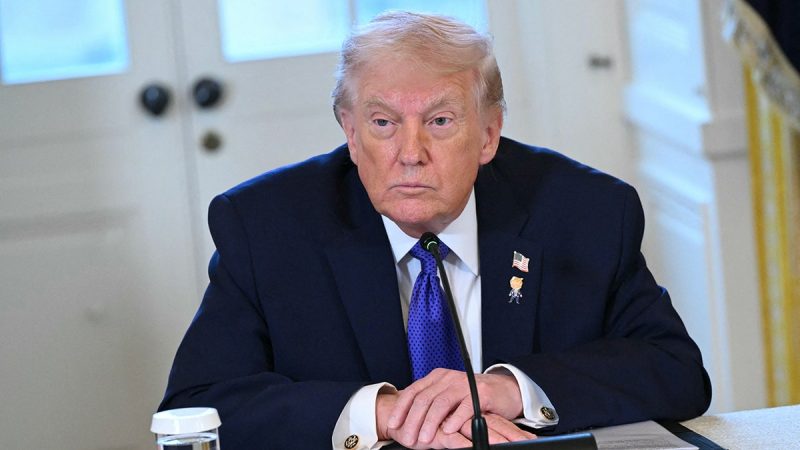
President Donald Trump pushed back on suggestions from Ukrainian President Volodymyr Zelenskyy that the United States could capture Russian President Vladimir Putin after Zelensky pointed to Washington’s recent action against Venezuelan dictator Nicolás Maduro.
Trump waved off the idea of such an operation, while venting frustration over the grinding war and his failure so far to bring it to an end. Trump repeatedly said on the campaign trail that he could end the war on his first day back in office. Despite meetings with both Zelenskyy and Putin, a resolution remains elusive.
‘Well, I don’t think it’s going to be necessary,’ Trump said in response to a question from Fox News’ Peter Doocy during a meeting with U.S. oil companies executives at the White House Friday.
‘I’ve always had a great relationship with him. I’m very disappointed,’ Trump said of Putin. ‘I settled eight wars. I thought this would be in the middle of the pack or maybe one of the easier ones.’
Trump said the conflict continues to take a heavy toll, particularly on Russian forces, and claimed Moscow’s economy is suffering.
‘And in the last month, they lost 31,000 people, many of them Russian soldiers,’ Trump said, adding that the Russian economy is ‘doing poorly.’
‘I think we’re going to end up getting it settled,’ Trump said. ‘I wish we could have done it quicker because a lot of people are dying.
‘But largely it’s the soldier population,’ he continued. ‘When you have 30,000, 31,000 soldiers dying in a period of a month, 27,000 the month before, 26,000 the month before that. That’s bad stuff.’
Trump also criticized the Biden administration for sending what he said was $350 billion to Ukraine, arguing the U.S. should be able to recoup costs through a rare earth minerals agreement tied to continued support. He also claimed the U.S. is not losing money in the conflict, saying Washington is benefiting through arms sales to NATO allies, pointing to NATO’s pledge to raise defense and security spending toward 5% of GDP by 2035, up from the longstanding 2% benchmark.
‘We’re not losing any money. We’re making a lot of money,’ Trump said.
Zelenskyy made his comments after Russia said it fired its new nuclear-capable Oreshnik hypersonic missile as part of a massive overnight attack on Ukraine, a claim Kyiv disputed. Ukrainian officials said the barrage involved hundreds of drones and multiple missiles and struck energy facilities and civilian infrastructure, killing at least four people.
Zelenskyy called on the United States and the international community to respond, saying Russia must face consequences for attacks targeting ordinary civilians.
Fox News’ Rachel Wolf contributed to this report.